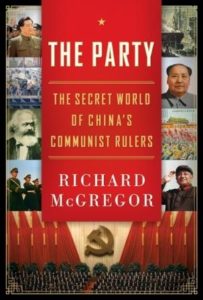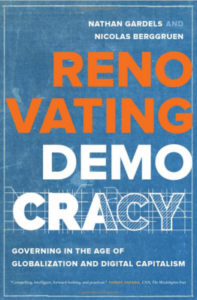American power is being challenged by rivals, such as China, that are keen to replace Washington as the one to write the rules of global conduct, argues Mira Rapp-Hooper, Stephen A. Schwarzman Senior Fellow for Asia Studies at the Council on Foreign Relations.
Power is the organizing principle of international politics. That endows the United States with an extraordinary ability to coerce others—that is, to make them follow its lead through a mix of inducements and penalties. As a result, Washington has had a unique ability to promote its political and economic agenda abroad, she writes for Foreign Affairs:
 In international relations, power is influence over outcomes. It takes many forms, from military to diplomatic, and its distribution among states is always uneven, usually favoring the materially endowed. Whether in the Roman Empire, the Chinese tribute system, or the Concert of Europe, the strongest and richest states sat atop the system, set the terms of its governance, and reaped disproportionate benefits—including the power to induce, coax, and threaten less powerful actors to bend to the leader’s will.
In international relations, power is influence over outcomes. It takes many forms, from military to diplomatic, and its distribution among states is always uneven, usually favoring the materially endowed. Whether in the Roman Empire, the Chinese tribute system, or the Concert of Europe, the strongest and richest states sat atop the system, set the terms of its governance, and reaped disproportionate benefits—including the power to induce, coax, and threaten less powerful actors to bend to the leader’s will.
There is a pronounced ideological dimension to the new great power competition, observers suggest.
A complex, and more thoroughly ideological set of theories underpins the justification for Xi Jinping’s rule, notes Richard McGregor, a senior fellow at the Lowy Institute in Sydney and the author of numerous books on East Asia, including The Party: The Secret World of China’s Communist Rulers, and most recently, Xi Jinping: The Backlash.
 In the words of Document 9, a foundational intraparty communique circulated in the early months of Xi’s first term in 2013, and later leaked to a Hong Kong magazine: “We must also clearly see the ideological situation as a complicated, intense struggle,” he writes for Foreign Policy. The document envisages a multifaceted struggle against constitutional democracy and the notion of universal values, a dismantling of civil society, and strict controls on journalism and journalists to make sure they are loyal to the party.
In the words of Document 9, a foundational intraparty communique circulated in the early months of Xi’s first term in 2013, and later leaked to a Hong Kong magazine: “We must also clearly see the ideological situation as a complicated, intense struggle,” he writes for Foreign Policy. The document envisages a multifaceted struggle against constitutional democracy and the notion of universal values, a dismantling of civil society, and strict controls on journalism and journalists to make sure they are loyal to the party.
“The ultimate disruptor of the “Chinese Dream” in the short term is unlikely to be Xi’s ideological campaigns—the Chinese people are used to them in one form or another,” McGregor adds. “But as in Hong Kong, when the economy unravels, or at least hope of a better life disappears, the ideology that had been marketed as underpinning prosperity starts to look threadbare as well.”
pro-democracy movement is fueled to a large extent by “foreign interference”, something to which the Chinese are particularly sensitive, given the nation’s near-capitulation to foreign powers from the mid-19th to the mid-20th centuries, notes analyst Wee Kek Koon.
However, in constructing the narrative of itself as a victim of foreign aggression and interference in modern times, China may do well to remember that it has, on multiple occasions, interfered in the internal affairs of other nations, he writes for The South China Morning Post.
 Is democratic renewal a prerequisite for restoring the credibility of efforts to advance democracy and liberal values?
Is democratic renewal a prerequisite for restoring the credibility of efforts to advance democracy and liberal values?
On October 1, the Foreign Policy program at Brookings (above) hosted Nathan Gardels and Nicolas Berggruen, authors of “Renovating Democracy: Governing in the Age of Globalization and Digital Capitalism,” to present finding from their research on how democratic systems work — and how they fail.







